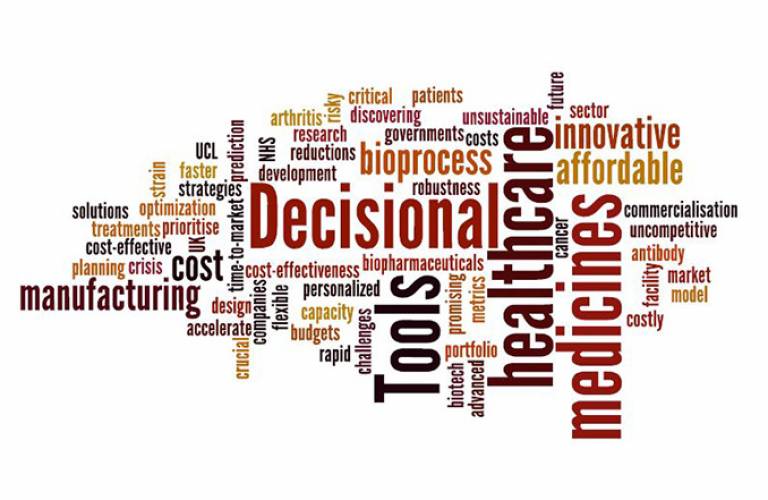Better decision-making in drug manufacture

12 December 2014
Pharmaceutical companies are using tools developed at UCL to improve their decision-making during drug development, helping them save time and money by streamlining their processes. The systematic methods allow companies to better understand how best to implement innovative manufacturing strategies and ultimately deliver more affordable medicines to patients.
Biopharmaceutical and cell therapy manufacturers face inevitable uncertainties about process yields, doses, timing, clinical trial success rates and market potential. UCL research developed systematic methods to increase understanding of the impact of these uncertainties and so improve decisions about biotech manufacturing strategies. The Bioprocess Decisional Tools (BDT) - a set of proprietary algorithms and software - integrate business and process models to enhance the design of cost-effective bioprocesses, capacity planning and portfolio management.
The consortium of companies involved in the original research have been extensively using BDT to gain greater understanding of the impact of critical decisions on key financial, operational and risk metrics.
Further research into handling more complex problems expanded the tools, which have now been used by more than 15 other biotech companies. The companies are reaping benefits not just in cost and time savings, but also through creating jobs and shifting investment decisions to more profitable lines. With the insights gained through use of the tools, companies can prioritise their research and development activities by focusing experimental resources only onto the most promising manufacturing processes. This not only saves time, but also avoids significant investment into alternative strategies that the models identify as economically uncompetitive.
For example, one leading manufacturer of novel antibody-based therapeutics - the fastest growing segment in the biotech sector - used the outcomes of the UCL modelling to focus precious process development resources onto the most attractive strategies for further experimental verification, saving time and reducing costly experimentation. Timely market introduction of a novel drug can mean the difference between a blockbuster drug and one that barely makes a profitable return on the investment in its development.
At another company, the use of the software led to a six-month reduction in development time for a new product. The value of this in sales revenue was estimated to be at least $50 to $100 million.
BDT also forms part of UCL's Masters-level MBI® training courses attended by senior industrialists from leading companies worldwide.
 Close
Close

